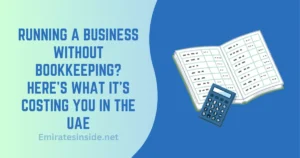The Smart Way to Enter the UAE Market
The region rewards clarity. It’s easy to get dazzled by skylines and headlines, then stall on basics like licensing, premises, and banking. Dubai is the operating heart of the Emirates, and it offers two clean routes into the market that shape everything after launch: a Free Zone structure or a Mainland license. Pick well, and growth feels linear. Pick poorly, and every contract, invoice, and visa becomes a workaround.
If the goal is momentum rather than red tape, DASA Consulting LLC, Dubai helps teams set up business with the right approvals, banking pack, and ongoing compliance so execution doesn’t slip.

Why this market keeps winning
Dubai isn’t just a dot on the map; it’s a distribution engine. Goods, services, and talent move fast, English is standard in commerce, and customers come from every time zone. Logistics, digital services, healthcare, hospitality, F&B, construction, and finance all find real demand. The question is not “why here” but “how to structure company formation so operations run smoothly from day one.”
Free Zone vs Mainland: what the decision actually changes
These are both legitimate paths. They just suit different commercial plans.
Free Zone
- Streamlined company formation with predictable steps.
- Full foreign ownership as the default.
- Flexible offices (from flexi-desk to warehouses), sector clusters, and founder-friendly packages.
- Ideal for cross-border trade, online services, and holding companies.
- Direct selling to Mainland customers typically requires an approved channel, such as a distributor or a branch setup.
Mainland
- Sell anywhere in the UAE without geographic limitations.
- Bid directly for government and large-enterprise work.
- More defined premises requirements and inspections.
- Foreign ownership now allowed for many activities, reducing old frictions.
- Deeper compliance than some Free Zones, but a cleaner route when the UAE is the primary market.
When a Free Zone makes more sense
Speed, clarity, and sector proximity are the draw. Tech studios, SaaS, consulting, media, e-commerce sellers shipping cross-border, and wholesale traders often start in a Free Zone. The licensing menus are crisp, the timelines are tight, and visa allocations scale with headcount. Not all zones are equal, though. Some are built for logistics, others for media or fintech. Banking can be easier in zones with strong KYC reputations. If occasional Mainland retail or frequent on-site work is part of the model, confirm those mechanics upfront. It’s cheaper to select the right zone than to migrate later.
When Mainland is the right lever
If revenue depends on face-to-face delivery, public-sector tenders, or direct invoices to UAE buyers, Mainland wins. Retail, clinics, construction, facility management, and local B2B services fit naturally here. Expect more defined rules on signage, office leases, and health and safety. The trade-off is worth it: no structural detours when a key customer wants a direct contract or a long-term framework agreement.
Costs, timelines, and the honest version of both
Free Zone packages can look lighter on price; Mainland often carries higher premises and compliance costs. What really drives both is activity scope, staff count, and your banking profile. Build a realistic timeline buffer. One missing approval can ripple into delayed hiring or slow supplier onboarding. That’s avoidable with a clean sequence for name reservation, initial approvals, space, license issuance, establishment card, visas, banking, and tax registration.
Compliance is part of the operating system
Modern UAE regulation expects real governance, not box-ticking:
- Choose activities that match operations; vague selections trigger amendments.
- File UBO details accurately and observe economic substance rules where applicable.
- Understand corporate tax exposure; thresholds and exemptions vary by activity and profit.
- Register for VAT at the threshold and keep invoices and filings tight.
- Maintain proper books and annual audits where your license or size requires it
A tidy file makes banking easier, accelerates due diligence, and prevents penalties that quietly erode margins.
Banking without the headaches
Banks in the UAE are selective. A strong compliance pack helps: business plan, lease agreement, initial contracts or invoices, passport and visas, proof of source of funds. Free Zone entities that primarily serve Mainland clients should document the delivery model early to reduce questions. Fintech options are growing, but traditional banks still anchor corporate finance, payroll, and trade facilities.
Quick decision tool
Ask these simple questions before company formation:
- Will most revenue come from UAE customers who expect direct service and contracting? Go Mainland.
- Is the model cross-border, digital, or wholesale with distributors handling last-mile UAE sales? A Free Zone fits.
- Do you need a high-street presence, clinic, or showroom in a specific district? Mainland.
- Do you want a sector cluster, flexible space, and rapid visa scaling? Free Zone.
Steps to set up business in Dubai (the clean sequence)
- Define licensed activities that match actual work.
- Select jurisdiction: choose a Free Zone aligned to your sector, or Mainland for full UAE access.
- Reserve the company name and secure initial approvals.
- Secure premises (from flexi-desk to full office) that satisfy license and hiring plans.
- Obtain the trade license and establishment card.
- Process visas and open the bank account with a well-prepared dossier.
- Register for VAT and corporate tax where required; set up bookkeeping from day one.
- Calendar renewals, audits, and any license amendments so filings are never last-minute.
Avoidable pitfalls
- Activities that don’t reflect reality.
- Underestimating premises rules for regulated trades.
- Picking a Free Zone while running a Mainland-heavy sales plan.
- Late VAT or corporate tax registration.
- Weak bookkeeping that slows audits and spooks banks.
Bottom line
There’s no single “best” structure. There is only the structure that matches the revenue model. Free Zone unlocks speed and international reach. Mainland unlocks the full domestic market and public-sector doors. Both work when compliance is built into operations and banking is prepped with care. With the right sequence and support, company formation becomes a stepping stone, not a hurdle. Advisory help from DASA Consulting LLC, Dubai keeps the focus on execution, not paperwork, exactly where it belongs.




